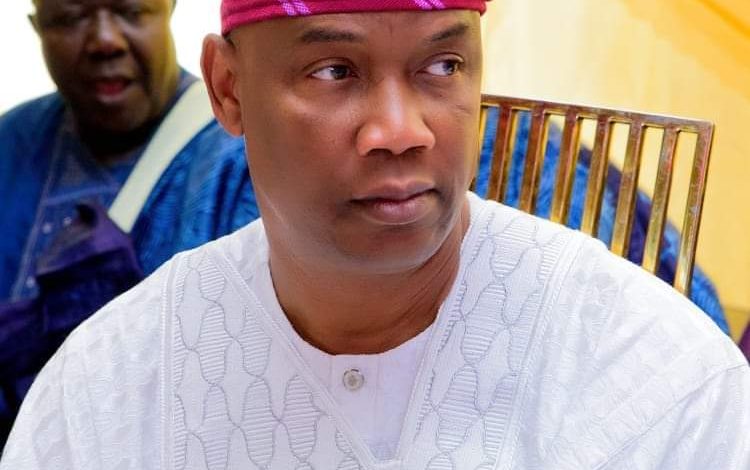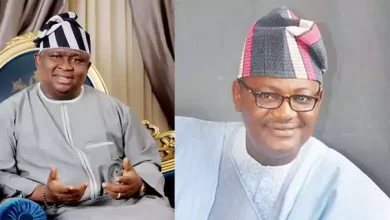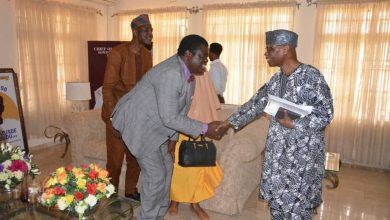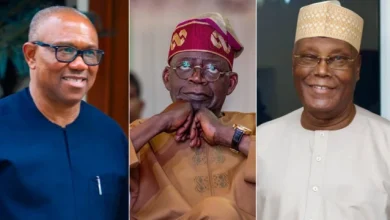Nigerians And Their Complex Way of Life -By Mogaji Wole Arisekola

If I had not traveled and lived outside Nigeria before, I would have thought that Nigeria should be greater than it is now. I would have believed that one day, a miracle would happen, transforming our country into the giant it promises to be. But alas, there is something fundamentally wrong with our way of life. It’s not even getting better; we are heading down a precarious path in the existence of humanity on the surface of the earth.
Since yesterday, I have been pondering what is wrong with our way of life. I reflect on past Nigerian leaders, from Alhaji Shehu Shagari to General Buhari, to General Babangida, to General Sani Abacha, to General Obasanjo, to Alhaji Musa Yar’Adua, to Dr. Goodluck Jonathan, to General Buhari again, and now to the incumbent, President Bola Ahmed Tinubu. The story remains the same, ranging from one lamentation to another.
We Nigerians are very quick to apportion blame without examining our own ways of life. Living and working with Nigerians who have newly relocated abroad often brings tales of sorrow. If you want to understand me better, employ a newly arrived Polish citizen and a Nigerian to work for you abroad. You will quickly notice that the Polish individual will perform far better than the Nigerian.
Returning to Nigeria to start a business is no different; it’s a sad experience. How can we justify this? A young medical doctor, the daughter of a retired Chief Justice, employed three domestic staff to work in her house. Within 10 days of their appointment, they killed her and stole her property. What type of life are we living? We’re complaining about hunger, and some people go to loot another person’s property. Is the property they looted government-owned? And people are happily streaming it on social media. Are we normal at all?
These protests are predictable; people know how they will end. They are sure of where they will eventually lead. The poor will become poorer, and the average citizen who has been struggling all his life with his business will be brought down. When I saw the Kano governor endorsing the recent protests, I pitied the type of leaders we have in Nigeria. He already knows that there is tension in his state concerning his decision over the choice of some traditional rulers. The deposed Emir’s camp and the incumbent Emir have been looking for a way to hold each other’s jugular.
Pronto, the inexperienced governor gives them the opportunity to vent their anger and frustration on himself and the good people of his state. I pray the curfew will bring the much-needed peace to his state.
Our way of life is troubling. We seem to have lost the core values that once held us together. Respect for life, property, and the rule of law has diminished. What has gone wrong? Is it the leadership, or is it we, the citizens? Our culture of expecting miracles and divine intervention has clouded our sense of responsibility and hard work. We blame our leaders for everything, yet we do not hold ourselves accountable for the roles we play in our collective downfall.
Our educational system, once the pride of Africa, is now in shambles. Graduates are churned out with little or no skills, unable to compete in the global market. Our healthcare system is in a deplorable state, with many seeking medical care abroad. Our infrastructure is decaying, and corruption is rampant at all levels.
In contrast, countries with fewer resources have made remarkable progress. Why can’t we? What are we doing wrong? It is high time we asked ourselves these hard questions and sought genuine answers.
We must begin by instilling discipline in our homes and schools. Parents must teach their children the values of honesty, hard work, and respect for others. Our educational system must be overhauled to emphasize skill acquisition and innovation. We must hold our leaders accountable and demand transparency and good governance.
Entrepreneurs must be encouraged and supported, not stifled by harsh economic policies and bureaucratic bottlenecks. We need to create an enabling environment for businesses to thrive. The government must invest in infrastructure and ensure that basic amenities are available to all citizens.
Furthermore, our justice system must be strengthened to ensure that criminals are brought to book, and the innocent are protected. The rule of law must prevail, and no one should be above the law.
In addition, we must change our mindset. We must stop waiting for miracles and take our destiny into our own hands. We must work hard, be innovative, and believe in ourselves. We must learn from other countries, adopt best practices, and adapt them to our context.
Moreover, we must embrace unity in diversity. Our ethnic and religious differences should not divide us. Instead, we should see them as strengths and work together for the common good. We must promote peace, tolerance, and mutual respect.
The media has a significant role to play in this transformation. It must educate the public, highlight positive stories, and hold those in power accountable. Social media, while a powerful tool for communication, must be used responsibly. We must shun fake news, hate speech, and incitement to violence.
Our religious leaders also have a crucial role. They must preach peace, love, and unity. They should encourage their followers to be law-abiding and contribute positively to society.
It is not too late for Nigeria. We have the resources, both human and material, to turn things around. But it requires a collective effort. We must all be willing to make sacrifices, to put the interest of the nation above personal gains.
As we reflect on our past, let us learn from our mistakes. Let us resolve to do better, to be better. Let us build a Nigeria that we can all be proud of. A Nigeria where the rule of law prevails, where every citizen has the opportunity to succeed, where we live in peace and harmony.
Our journey will not be easy, but it is a journey worth taking. For the sake of our children and generations to come, we must rise and take action, our way of life needs a complete overhaul. We must believe in Nigeria, in our ability to overcome our challenges and emerge stronger.
We must change our mindset, instill discipline, hold our leaders accountable, and work together for the common good. It is only then that we can realize the true potential of Nigeria and build a nation that we can all be proud of.
Mogaji Wole Arisekola writes from Ibadan.







